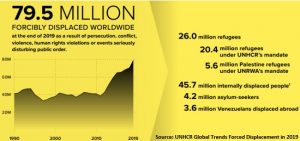Supporting the integration of refugees in the healthcare and social sector
Supporting the integration of refugees in the healthcare and social sector
UNHCR estimates that approximately 56 million people are currently displaced. The civil wars taking place in many places of the world, alongside the environmental challenges, take a great toll on the number of people that are forced to abandon their countries and homes.
Research has shown that the increase in refugee flows inevitably affects healthcare delivery and the quality of care people receive. Risk factors associated with the migration process alone, language barriers and cultural differences are some of the main factors for that.
Communication, which is the solution and the problematic area in this situation, can affect the patient-physician relationship, the acceptance of the diagnosis and of the treatment plan, as well as the necessary support from families and communities.
Various projects have been deployed in the EU throughout the years to tackle this situation, using different approaches, methodologies and focusing on different target groups. I-CARE is one great example of the work that can be done at a project-level. BASE project, which aims to empower migrant and refugee women as Cultural Advisors through the implementation of a training program, which will address gender-based violence, in order to foster communication between support service professionals and girls victims of GBV, is another example of how projects can affect and improve the relationship of refugees with the healthcare and social sector.
Either focusing on the healthcare professionals, managers and institutions such as we do in the I-CARE project, or focusing on the refugees and migrants directly, the aim is to support the right of the refugees to access quality healthcare and social care services.

